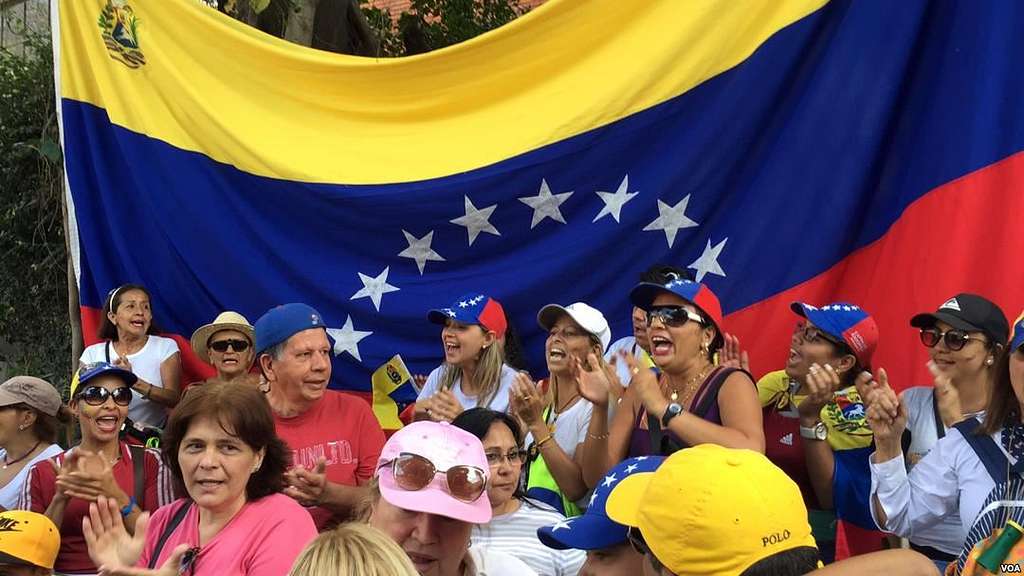Venezuela’s Presidential Election: A Precarious Path to Democracy

In an astonishing turn of events, Venezuela’s presidential election is less than one week away. Scheduled for July 28, this vote represents the clearest opportunity for a democratic transition despite numerous failed attempts since Caracas was hijacked by socialism.
In recent months, a groundswell of opposition support has coalesced in Venezuela, with observers noting a real possibility of political change. This sentiment continues to grow as Edmundo Gonzalez’s candidacy gains momentum. But how did we get here?
Three key events have set the stage: the Barbados Agreement, the opposition primaries, and the opposition’s unified strategy.
At the start of 2023, Venezuela’s opposition was fragmented and demoralized. Meanwhile, the government, the Maduro regime sought legitimacy to negotiate the lifting of sanctions, especially those impacting the oil sector, after having neutralized the Interim Government.
In a reluctant move, Maduro supported international efforts leading to the Barbados Agreement—a roadmap allowing the opposition to participate in the 2024 elections under better conditions than the controversial 2018 elections, which were widely deemed fraudulent and triggered a legitimacy crisis.
The agreement also mandated respect for the opposition primary results. Despite government-imposed obstacles, such as the disqualification of then opposition leader María Corina Machado’s and threats to disrupt the process, Machado still secured over 93% of the votes in the primary.
Machado’s disqualification forced the Unitary Platform to find a new candidate. Initially, they chose academic Corina Yoris, who faced similar barriers from the National Electoral Council. Eventually, the electoral authority permitted the registration of former ambassador Edmundo Gonzalez, previously unknown, as a placeholder for the opposition. Machado, through numerous rallies, has since promoted Gonzalez, who now leads Maduro by up to 30 points in voter intention across several polls.
Despite the opposition’s strategic coordination, the election is far from over and the process remains fraught with uncertainty. The Maduro regimes’ disenfranchisement of millions of Venezuelans is another critical issue. Amid reports of the regime making it difficult for overseas voters to cast ballots, only 69,211 remote voters have been registered out of an eligible 5 million, effectively excluding nearly 25% of the electorate.
Inside the country, a short registration period and limited number of voting locations further exacerbate this issue, leaving millions unable to register.
Electoral violence persists, with over 40 opposition-linked individuals arbitrarily detained, some becoming victims of enforced disappearances. Six members of Machado’s Vente Venezuela movement are seeking asylum in the Argentine Embassy in Caracas after facing arrest. Meanwhile, small business owners aidingMachado’s campaign have faced sanctions and operational bans.
The regime exploits state resources for campaigning, using public media to promote Maduro and attack the opposition, and coerces state employees to attend campaign events. Meanwhile, Maduro continues to censor independent media, with dozens shut down by CONATEL, Venezuela’s regulatory entity. The electoral process has been marred by failures in schedule adherence, lack of publicity, and an inactive campaign to promote voting. The process is characterized by opacity and misinformation.
Despite this, some outlets have cautiously covered opposition rallies, and Gonzalez has even appeared in interviews.
Local electoral observation groups have participated in remote audits but lack official accreditation. The National Electoral Council revoked an invitation to the European Union for an electoral observation mission, breaking a Barbados Agreement commitment. However, the Carter Center and a United Nations Panel of Experts will attend, though their reports will remain confidential.
With less than a week to the election, the democratic opposition in Venezuela face overwhelming challenges but remain committed, backed by a majority that has little left to lose.
——————————————————————————————————-
Dr. Eric Patterson is President and CEO of Victims of Communism Memorial Foundation. Jesus Delgado is Director of Transparencia Electoral. All opinions are those of the author and do not necessarily represent the position or views of the institutions they represent or VOC.

